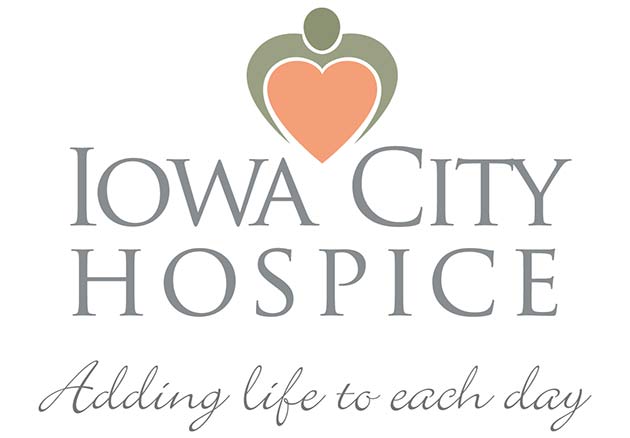Family Caregiver Connection
Helpful tips for family caregivers
October/November 2016
Fall is here. And with the change of season may come new responsibilities and pressures. This month we look at finances, one of the first areas where an aging relative may need assistance. Helping with money management is also something that a long-distance sibling can do to pitch in despite the geography. Another seasonal change is the beginning of flu season. Ugh! This month we share tips to minimize the chance of catching this nasty bug (for you and for your loved one). And although new responsibilities may mean more stress, recent research suggests ways to shift your stress mindset so it can work for you, not against you.
Managing your relative's money
 Confusion about finances is common among older adults. Balancing the checkbook and paying bills can just get to be too much.
Confusion about finances is common among older adults. Balancing the checkbook and paying bills can just get to be too much.
Assisting with money matters is something a long-distance son or daughter can do to help. Geography poses many challenges for those who live far away. But managing finances is a fairly simple task, near or far.
This may be a sensitive subject. As a culture, we tend to be very protective about our financial privacy. If your relative is open to assistance, however, here are some ways you might be able to help:
- Pay the bills. Have bills sent to you directly. You can pay from your relative’s checking account if he or she makes you an authorized signer. Or you can become joint owner of the account. Be careful, though. Shared accounts may result in your relative’s debts becoming yours as well.
- Use online banking. Watch activity on your relative’s checking account remotely. Arrange for important bills to be paid automatically. Pay them by credit card to avoid overdrafts in checking. (You can even earn frequent flyer miles with some cards. This can help with travel expenses when visiting a parent who lives far away.)
- Get online access to credit cards. Periodically log in to your loved one’s credit card account. Monitor expenses and quickly catch any fraudulent activities.
- Restrict credit card purchases. Do helpers need to shop for your family member? Some credit cards can be limited to vendors you preapprove. For instance, the grocer and the pharmacy. To add security, set them to not allow a cash-back option. You might also explore a credit card that disallows phone or Internet orders. This helps with scam protection.
- Become durable power of attorney. This document sets out conditions under which bankers and other officials can talk to you about your loved one’s accounts. This is useful in cases of dementia or serious illness. Download the form at powerofattorney.com.
- Consider professional help. A care manager can help you find a certified or bonded professional bill payer. Or check with the American Association of Daily Money Managers. If your relative is completely incapable, a care manager can also advise you about the process of having the courts appoint a guardian.
It is flu season
 Watch for symptoms of the flu. They include fever, body aches, chills, sore throat, headache, runny nose, cough, and fatigue.
Watch for symptoms of the flu. They include fever, body aches, chills, sore throat, headache, runny nose, cough, and fatigue.
Why the flu shot is important. Influenza (flu) is a highly contagious illness caused by viruses. People over age 65 are most at risk of having severe complications. Older adults represent up to 90% of those who die from the flu, especially seniors with heart disease or COPD, and those who live in a group setting.
To prevent catching the flu,
- get vaccinated each year, ideally by October. Vaccines are remade yearly because the viruses change.
- avoid close contact with people who are sick, especially anyone coughing or sneezing.
- wash your hands often. Use an alcohol-based hand cleaner if soap and water are not available.
- use tissue to cover a cough or sneeze, and then throw the tissue away. Alternatively, use the upper part of your sleeve.
- avoid touching your eyes, nose, and mouth.
These precautions are just as important for you as for your older family member.
If you or your loved one has symptoms,
- call the doctor. An antiviral drug may be advised. These work best if taken soon after symptoms begin. Ask the doctor what symptoms require going to the ER.
- stay home (except to get medical care). Limit contact with others until symptom-free for 24 hours.
- sleep, and drink fluids. Broth, water, juice, and other noncaffeinated drinks are best.
- get extra support. Have someone stop by daily. Good self-care is difficult when illness strikes. That fresh perspective and extra pair of hands are important.
If you are around someone who is sick, limit face-to-face time and wash your hands immediately after touching the person, their tissues, or clothing.
Return to topA new perspective on stress
 Stress has gained a dirty name during the past decades. It’s something we talk about needing to get rid of, as if it were wholly bad. Recent research, however, is showing that stress isn’t always a threat to our well-being.
Stress has gained a dirty name during the past decades. It’s something we talk about needing to get rid of, as if it were wholly bad. Recent research, however, is showing that stress isn’t always a threat to our well-being.
In fact, it provides many opportunities for growth. The very things that bring greatest meaning and joy to our lives are often the same activities that cause us stress. Being a parent. Work. Caring for a loved one.
People who handle stress well seem to have a particular “stress mindset.” They view stress as a challenge rather than something to be always feared. For instance, if they find themselves tense or revved up, they interpret their reaction as a sign that something important is at risk. Rather than flee from it or fight it, they get curious and look for opportunities to work with it.
Kelly McGonigal, PhD, author of The Upside of Stress, suggests this simple strategy:
- Acknowledge the stress as a sign your values may be threatened. Know your personal signs of stress (tight shoulders, headaches, overeating). Remind yourself that you are stressed because something important to you is endangered. Are you on edge with everyone because timeliness and reliability are core values for you? Hovering like a hawk over supplies because practicality is a virtue? Or stuffing feelings to maintain precious family harmony?
- Create a strategy for working with the stress. The hormonal responses to stress, such as adrenaline and endorphins, provide extra energy and focus. Harness those responses to help you seek information, resources, or support from others. As you make changes, look for solutions that incorporate the core values that are important to you.
- View it as an opportunity to grow. Afterwards, reflect on what you’ve learned. Actively reviewing how you’ve handled a situation builds confidence and skills for navigating future episodes of stress in a healthier way.

